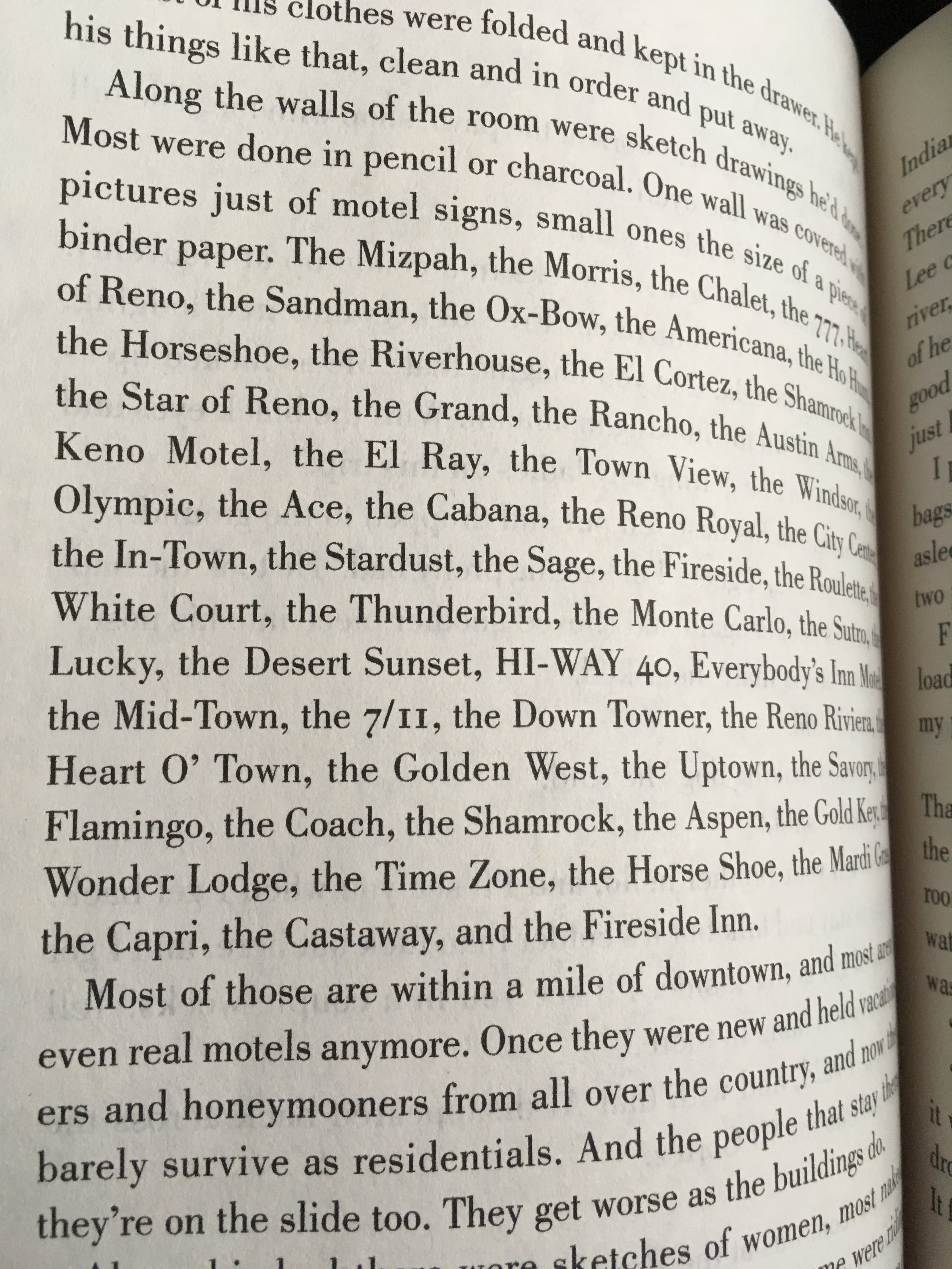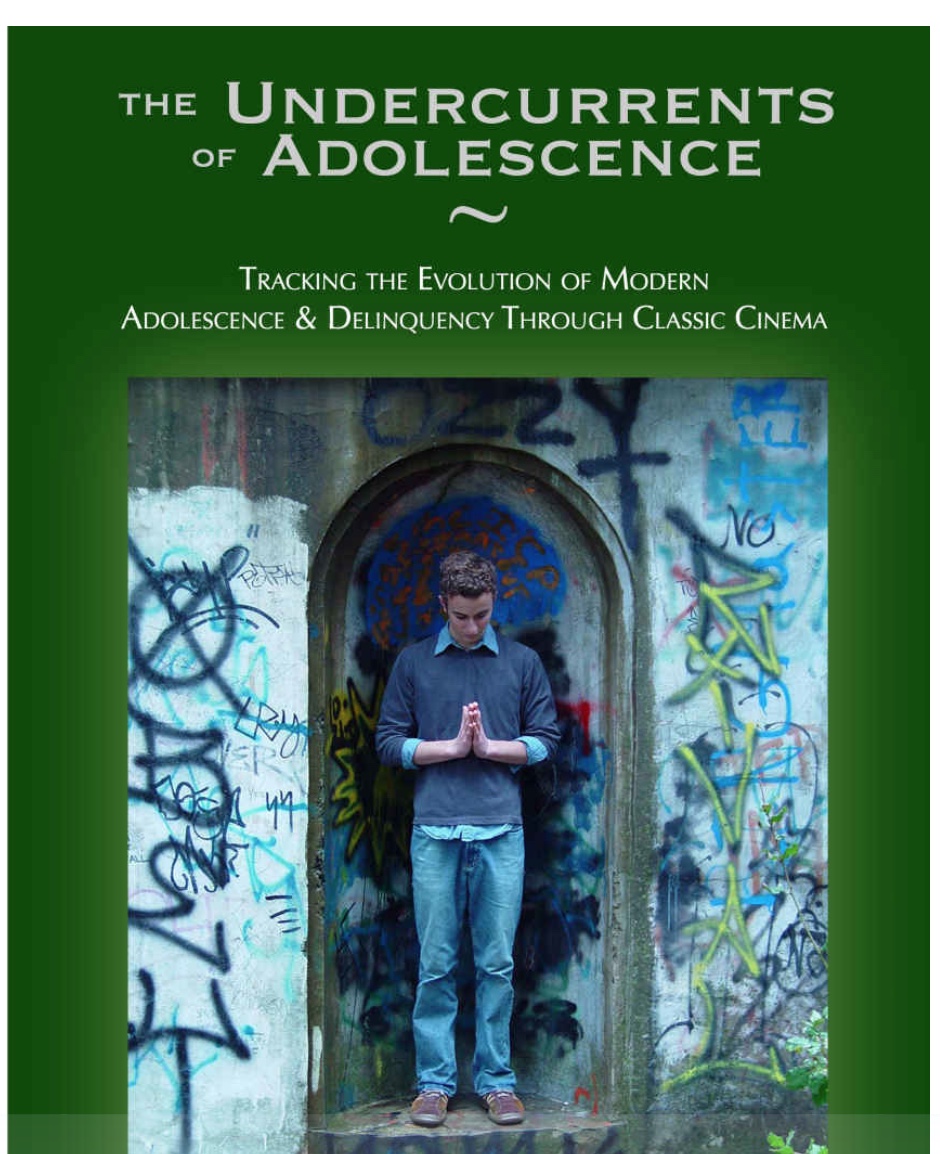Missing Motel Signs
“When I was a teenager, I dreamed of running away and the motel seemed like the easiest way to run away if you had the money,” he told Our Town Reno during a phone conversation as he toured with his new band The Delines. “The signs are beautiful. I can never get over how beautiful motel signs are. Some of the looks of those are just unreal and iconic.”
As many motels are being bulldozed away for promised developments, many of those signs are now gone, with an uncertain fate, between developers who might put them back up or a future museum.
Vlautin is proud his book stands as a testament to a certain time in this place.
“I’ve always loved Reno. I left Reno kicking and screaming. I just left because I was kind of a bum and a failure there. I was in love with Reno when I wrote The Motel Life. I counted over 110 motels in a mile radius downtown when I was working on the book.”
Many of the motels listed in The Motel Life have recently been bulldozed away.
Writing about Drifters Rather than Celebrities
Vlautin says it used to be mostly drifters and those on the fringes who lived in the motels.
“I’ve always been drawn to the darker side of things. That side of Reno always made sense to me. I always felt comfortable in it….My favorite stories are always the down and out stories they always have been. In The Motel Life I was interested in that side of life because I was living like that. So it made sense I would write about it. I had a friend who was living hard and I would follow him around all the motels. It’s a different way of living that Reno had. All these motels were generally a safe place for people who often had bad credit and couldn’t get an apartment or didn’t have the money, or legal problems, and they couldn’t get a legitimate place. I was writing about that lost society that lived inside the motels, which is just a reflection of America, and a reflection of a certain underclass which just falls into the cracks. At least in Reno, in the motels they had a safe place to stay.”
He said when Motel Life got critical acclaim, some Reno residents tried to have him write a different style of book.
“Some people understand that book, but I’ve had old ladies come up to me and say you know 'It’s not like that in Reno' and I’d say … 'Well, when’s the last time you’ve been on 4th street or downtown?' And they would say ‘Oh I don’t go down there, I would never drive down 4th street.’ So people sometimes don’t like to look at what’s right in their backyard, they don’t want to know. There’s some of that going on in America in general, with homelessness. Why are there so many homeless people in Portland, in Seattle, in San Francisco, Los Angeles, all over the West in big cities. With The Motel Life some of the older people would take me aside and say ‘Why can’t you write about Chris Ault, the [UNR] football coach and athletic director?’ “
The Motel Life was also made into a 2012 movie (trailer above) . "I begged them to film the movie version of The Motel Life in Reno …. And it was filmed in Reno," Vlautin said. "They just didn’t shoot in Elko. They made Virginia City Elko. They shot the Cal Neva. They shot the Halfway Club. They shot at the Elbow Room, right before they painted the Elbow Room and kind of screwed it up in my opinion. That was my favorite old man bar. It’s a cool movie as a document of a way that Reno looked."
Mixed Feelings about the End of the Motel Era
Vlautin who left Reno for good in the mid 1990s when he was in his late 20s, lived at times at the Star Dust Loge when he would visit. He has mixed feeling about the motel lifestyle fading away from Reno.
“I had a friend who lived in the motels and it wasn’t that pretty, his lifestyle. He was living rough. I spent time trying to find him in all these motels. They’re rough places. I’ve seen both sides of it. The motel signs are probably the only thing I would miss, the iconic 50s, 60s style motel signs and the designs I think are beautiful,” he said.
Vlautin understands preservationists, but also has sympathy for those who would rather forget about the downtown motel district. The answer though he says is even more complicated because destroying the motels can also worsen homelessness.
A Murky Question to Ponder
“For a city like Reno they can be a rough thing too, for people who live in them who are sometimes on the edge of society,” he said. “I can see how regular citizens and the town would be skeptical of them. Homelessness is a problem also, throughout America, and in the West in particular right now. It’s a hard question. A lot of these people, when you close the motel, they are going to become homeless. There's more families and older people in the motels now. But it’s rough being in those motels and being in that lifestyle too. It’s a tricky, murky question to ask.”
Vlautin who now lives one hour outside of Portland, and continues to write, tour and play music, warns of the dangers of becoming too hip. “The city Is transforming into something different and the motels might have to go,” he said. “Hipsters are hipsters and all I know is they kill old man bars. If Reno can hang on to any old man bar it has then that would be great.”













































































